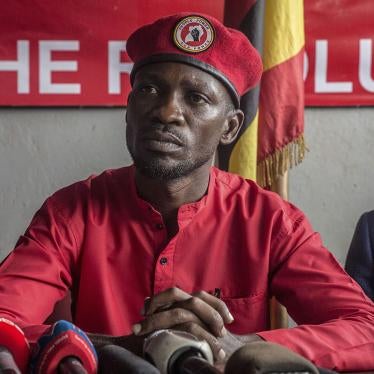Moving boxes were everywhere in the office of the EU delegation in Zagreb when I visited in early June. As Croatia joined the Union on July 1, the EU delegation in Zagreb is closing shop. But just because Croatia has been formally admitted to the Union doesn’t mean that it has met all its human rights obligations under EU law.
A June research mission to Croatia by Human Rights Watch shows that the government still has a lot of work to do when it comes to protecting rights. Independent groups told me that Croatia’s membership bid had given them leverage to press for human rights reforms. But they expressed concern that now that Croatia has joined the EU, it will have less incentive to continue those efforts.
A look at the state of human rights in Croatia underscores their concern. Croatia made commitments to the EU to create community-based programs for housing and support for some 9,000 people with mental or intellectual disabilities who live in institutions. But little progress has been made, despite Croatia’s commitments and the fact that it was one of the first countries to sign the UN disability rights convention.
Croatia is struggling to cope with the increasing numbers of asylum seekers. Overcrowding in the reception centers where many are held has resulted in some being transferred to closed detention centers for undocumented migrants. Hundreds of unaccompanied migrant children have not been getting the specialized protection required by international law, putting them at risk of becoming victims of crimes such as trafficking and forced labor. With the anticipated rise of asylum seekers now that Croatia is an external border of the EU, the United Nations refugee agency, UNHCR, is worried that the situation will get worse.
The situation for Roma and some Serbs remains precarious. Roma without identity documents find it difficult, if not impossible, to access basic state services such as health care and education. Some are effectively stateless. Serbs who were stripped of their tenancy rights during the 1991-1995 war continue to face difficulties accessing a program to purchase apartments below market rate, due to costly and cumbersome procedures.
In meetings, government officials acknowledged the need to continue efforts to improve the human rights situation in the country. But actions speak louder than words. There is a danger that without real political commitment, momentum for progress on rights will falter.
Though accession ends formal EU monitoring of Croatia, EU institutions have a responsibility to closely monitor compliance with human rights and rule of law and respond forcefully to abuses inside the EU borders. This applies to all member states, including Croatia.
The case of Hungary shows that the EU countries can backslide on human rights and the rule of law. And the EU’s weak response to the situation in Hungary risks sending a signal to other member states that once you’re in the club, you’re safe.
The EU doesn’t need more cases like Hungary. So while the EU delegation is packing up in Zagreb, and Brussels welcomes Croatia as its newest member, the EU should take its obligation to protect fundamental rights in all member states seriously, by monitoring the human rights situation in Croatia, and making sure it continues to improve its record. The EU should also act forcefully against deteriorating rights and rule of law in any member state.
Croatia, for its part, should see its membership as an opportunity to further improve its human rights record so that it meets EU and European standards.
Lydia Gall is the Balkans/Eastern Europe researcher at Human Rights Watch.







